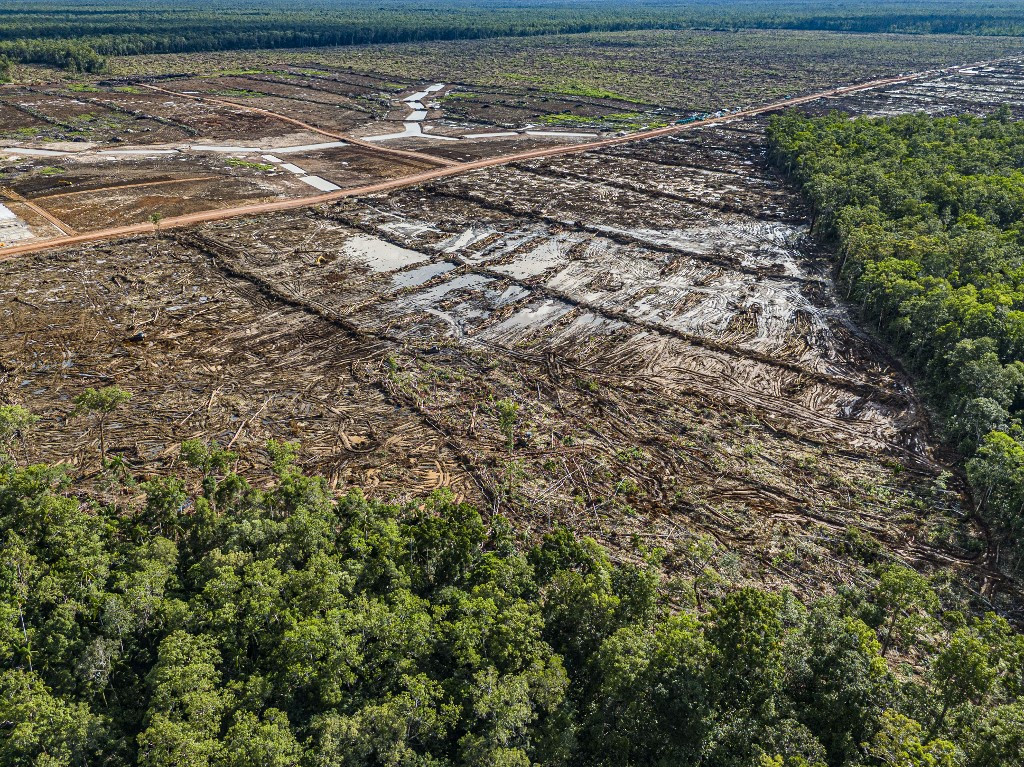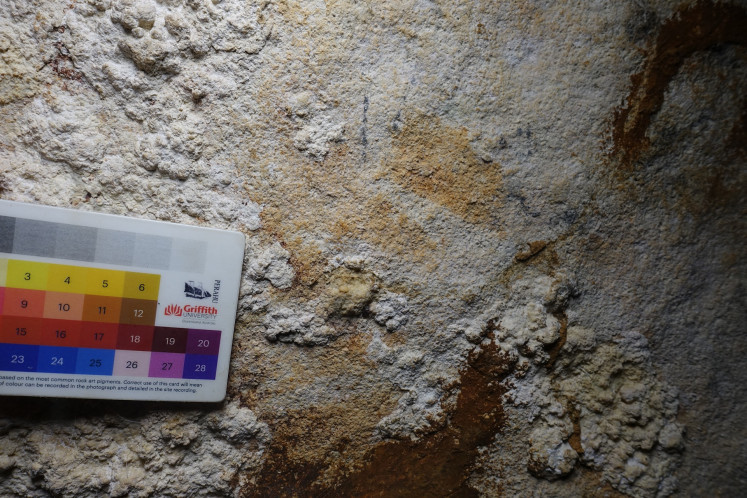Popular Reads
Top Results
Can't find what you're looking for?
View all search resultsPopular Reads
Top Results
Can't find what you're looking for?
View all search resultsThe South's survival manifesto, 50 years on
At Cocoyoc, postcolonial nations challenged the West’s obsession with growth. Fifty years later, Brazil’s forest initiative revives that original call for justice and survival.
Change text size
Gift Premium Articles
to Anyone
 A deforested area that will be converted into a sugar cane plantation by PT Murni Nusantara Abadi, directly threatening the adjacent customary forest protected by the Kwipalo Clan, is seen in this photo taken in Mandiri Jagebob, Merauke regency, South Papua, on March 17, 2025. (AFP/Handout/Mighty Earth/Yusuf Wahil)
A deforested area that will be converted into a sugar cane plantation by PT Murni Nusantara Abadi, directly threatening the adjacent customary forest protected by the Kwipalo Clan, is seen in this photo taken in Mandiri Jagebob, Merauke regency, South Papua, on March 17, 2025. (AFP/Handout/Mighty Earth/Yusuf Wahil)
S
he stepped off the plane in Mexico, her stride suggesting urgency. Barbara Ward, often described as a prophet of the coming ecological storm, had warned governments for years that the planet’s survival depended on a willingness to rethink growth. In October 1974, she joined colleagues, ecologists and thinkers from Africa, Asia and Latin America for a pivotal moment.
In the tranquil retreat of Cocoyoc, for the first time, countries in the Global South had a forum to articulate their own vision of “development.” This was more than simply responding to Northern agendas. Amid the heavy tropical air, Ward sensed something rare: an effort to unite sustainability, justice and ecology in a single declaration.
Half a century later, as calls for South-South cooperation resurface, including in Indonesia, where many urge President Prabowo Subianto to take a more active leadership role, the memory of Cocoyoc returns with renewed relevance. This historical reflection is especially timely given renewed diplomatic relations between two leading forestry nations.
Brazilian President Luiz Inácio Lula da Silva visited Indonesia this week, on his way to attend the 2025 ASEAN Summit in Kuala Lumpur as a guest, to rally support for the Tropical Forests Forever Facility (TFFF). The TFFF is an initiative to finance forest protection through an endowment mechanism led by the Global South.
His visit underscored a shared question first raised at Cocoyoc: Can postcolonial nations chart a path to ecological survival without being bound by Northern financial and policy frameworks?
To see why that question still resonates, it helps to return to its emergence. By the 1970s, postcolonial nations were deeply disillusioned with the Western-led, growth-obsessed model of development. Their discontent deepened with the shock of soaring oil prices and the growing debate about the “limits to growth”, sparked by the Club of Rome’s influential 1972 report.
Beneath this discontent lay a sharper realization: the West remained utterly dependent on labor and resources from the South, an effective continuation of colonial-era conditions. Jason Hickel in 2002 captured this: “Hundreds of millions of acres of land, tens of thousands of factories, and armies of labor across Asia, Africa and Latin America are woven into commodity chains that service Western monopolies, supplying them with everything from palm oil to petroleum, computer chips to smartphones.”


















